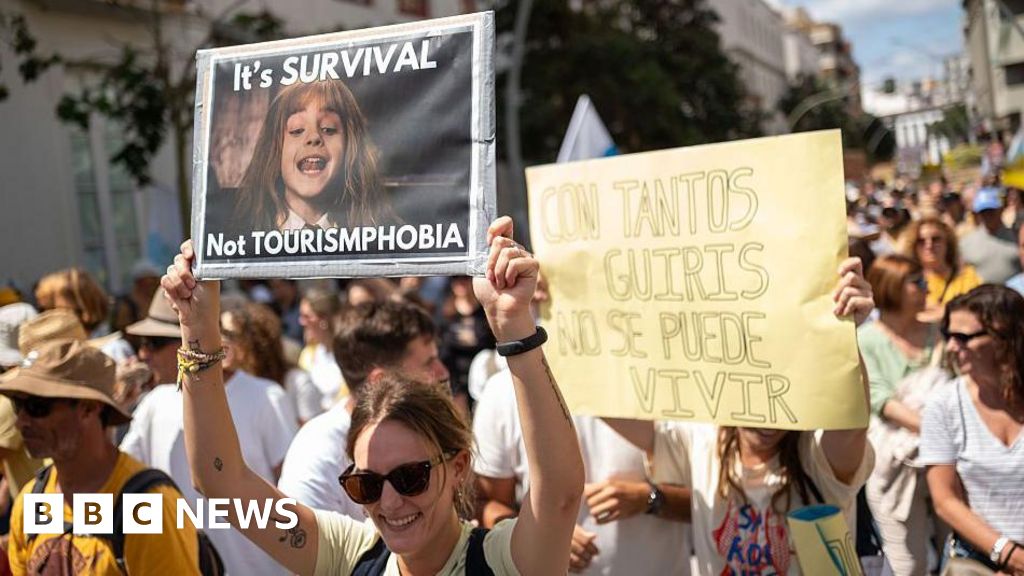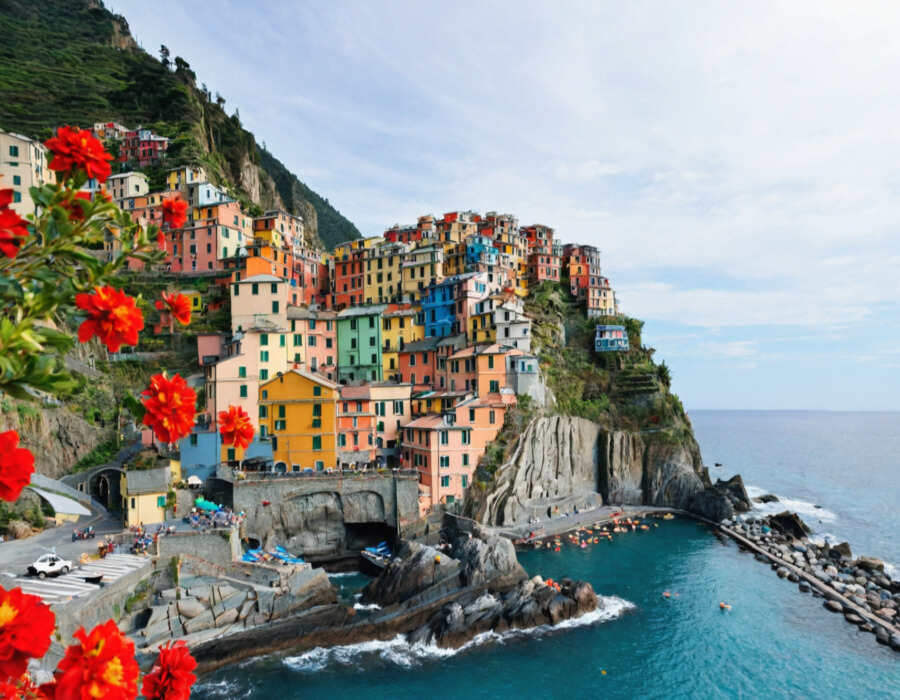Anti-tourism protests descend on European holiday hotspots - where will the disruption be? | ITV News
A wave of anti-tourism protests are being planned across Europe over the coming month as holidaymakers are warned of a summer of disruption.
Last year saw marches across hotspots like Barcelona, Venice, and the Balearic Islands as locals fumed over the impact excessive numbers of visitors have on their homes.
The campaigner's main complaint focused on the limited availability of housing for local residents, with rents soaring in many communities.
This holiday season, various groups across southern Europe are promising more protests, despite several countries and local authorities in impacted regions introducing measures to limit the worst impacts of excessive tourism.
Last week, Steve Heapy, chief executive of Jet2, warned British holidaymakers were becoming increasingly concerned about the issue.
Speaking at an event at the Spanish embassy in London, Mr Heapy said: "We’ve had people ringing the call centre and going into travel agents, asking questions like ‘is Spain safe’, ‘are we still welcome in the resort’."
He blamed "unlicensed tourism" for exacerbating the issue, blaming holiday rental companies for putting pressure on local communities.
Across the Canary Islands, protesters will take to the streets on Sunday, with organisers expecting over 100,000 people to be involved.
The main protest will take place in Santa Cruz, the capital of Tenerife. Other demonstrations are planned in the major towns on Gran Canaria, Lanzarote, and Fuerteventura, El Hierro, La Palma, and La Gomera.
There will also be protests in mainland Spain, with demonstrations planned across several major cities, including Barcelona, Madrid, Granada, and Valencia.
The protests on the Canary Islands are being organised by Canarias tiene un límite (The Canary Islands Have A Limit).
The group's demand is a shift to a more ecological and sustainable form of tourism that can support local residents, constant construction of major hotels and villa complexes, as well as controls on businesses like Airbnb.
They also fear that over-tourism is damaging the biodiversity of the Canary Islands, which is home to numerous unique ecosystems and want to see an ecological tax that will fund efforts to maintain the environment.
Campaigners have promised a long summer campaign.
Southern European Network Against Touristisation - a network of small protest groups that have the same goal of reducing tourism -held a major conference in Barcelona in April and confirmed it planned a unified protest across numerous countries.
The network includes groups from Spain, Italy, France, and Portugal.
The next major protest will take place on Sunday June 15, with demonstrations in cities across southern Europe.
According to the Spanish news website, The Local, protests have been confirmed in Barcelona, Palma de Mallorca, Ibiza, the Canary Islands, Naples, Palermo, Venice and Lisbon.
Along with large demonstrations planned in city centres, The Local also report placard protests are planned at airports and famous landmarks.
Numerous local and national governments have attempted to appease the protest groups with different policies, but so far, they haven't worked.
They have also run up against the powerful tourist businesses that run the hotels and resorts, who don't want to see any measure placing new restrictions on their customers.
Tourism makes up over 10% of Spain's economy, but in the country's areas most popular with tourists, like the Canary Islands, it makes up for almost a third of all economic activity.
Last year, the town of Mogan in Gran Canaria instituted a €0.15 a day tourism tax, but backlash from the tourism industry led to a judge suspending it a day after it was introduced.
It has since been reinstated.
Tourism taxes have also been implemented in many hotspots like Barcelona and Venice, with one planned to be introduced in Tenerife next year.
In Barcelona, the local government has also taken more action by banning the construction of new hotels and plans to outlaw Airbnb after 2028.
The Spanish government also recently introduced a law that made it a requirement for property owners to get consent from the local community if they wish to rent out their property to tourists.












